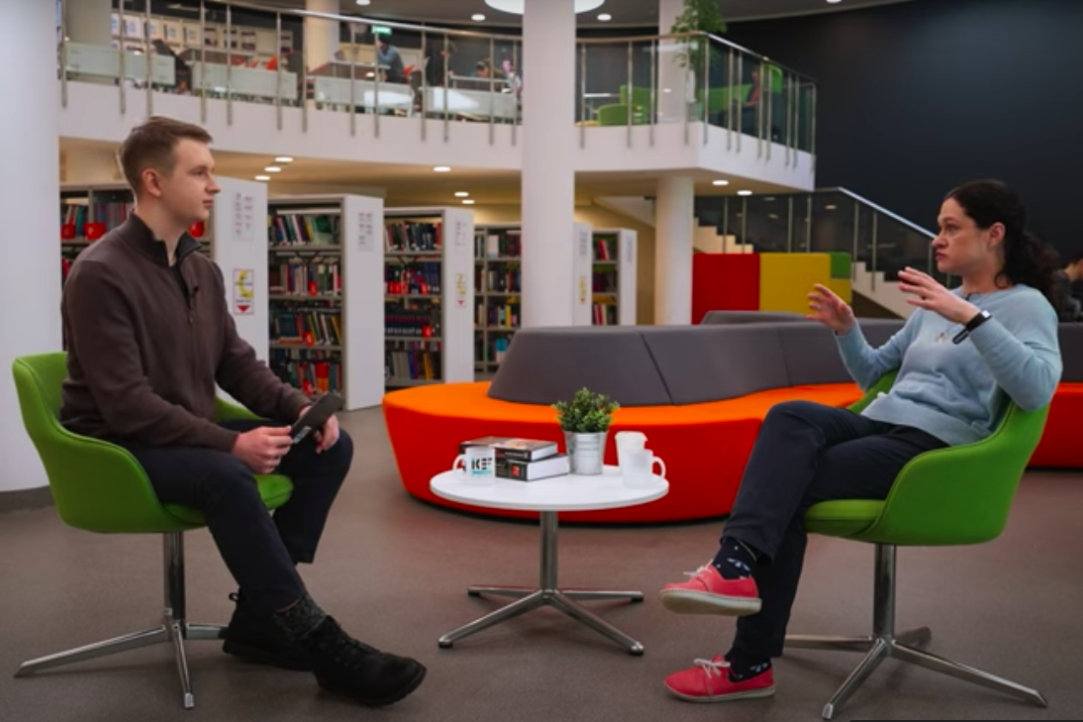“Self-Learning Skills Are the Core Future Skills You’ll Need in Your Career”

Associate Professor Anna Yurko holds a PhD in Economics and is coordinating ICEF’s MSc Programme as Assistant Academic Supervisor. Anna’s research interests lie at the interface of economics and social sciences. Her 2015 study into the multiple-child allowance policy, co-authored with Fabian Slonimczyk, was conferred the Yegor Gaidar Award. In this interview with HSE Talks podcast, Anna tells about how economics knowledge helps her to explore the education industry, what’s wrong with current system of career guidance among school students, and which skillset seems to be the most useful for experts of the future.
About current economics and education research
My research deals with economic efficiency in education and I pursue it in cooperation with my colleague Fabian Slonimczyk and the academics based internationally. Our recent study took us several years and uses multiple databases on learners in many different schools, including the one compiled by the HSE Institute of Education, to identify how the school students shape their education choices and decisions as to future career. There’s a variety of factors influencing their decision-making and among them school, parental influence, family income, academic progress and achievements, and state policy, the latter regulating the scope of state-funded places in universities. Another important factor is school students’ expectations of the level of income from different jobs and whether it may change at the time they enter the job market. This is what we explore scientifically from the economic perspective, using economic tools and methods.

It would, of course, be interesting to explore individual choices and how these are shaped, but we see our task primarily as aggregating the data and looking at the educational services market in terms of distribution of graduates across industries, which ultimately affects salary levels and employee affluence. One question we want to know is how the education sector can achieve well-balanced performance under the best case scenario for the job market situation. Our study is rather about identifying patterns than trying to make forecasts – the patterns that would prompt us some essential premises for achieving more effective interaction between schools, industries and regulators.
About finding your passion when you are a school student
I personally didn’t figure out where I wanted to be professionally until I graduated from the university, so I can imagine the career choice pressure being exerted on school students, and I don’t think it is productive. The modern world is very dynamic and changeable, and so is the job market. We can’t know for sure what careers will be in demand in the next 10 or 20 years.
Trying to decide on a narrow career track and preparing intensely for it while a school student doesn’t seem to be a wise choice
I think it’s much more important to first find out who you are and what you like – mathematics, languages, communicating with people or working with technology – and, based on that, try to obtain those basic skills and qualities required in your chosen field without narrowing your options.
Another thing every school student should be made aware of is that even if their initial career choice proves wrong, they don’t have to go on with it. Career mistakes do complicate our lives, leading to costly re-training, but they aren’t fatal. I always cite the example of my friend, who dreamed of playing American football professionally since he was a boy. He started his sporting career but suffered a serious back injury, spent three months learning to walk again. When his health was back to normal, he decided to get a PhD in Economics and is currently running his own hedge fund. People who make right career choices early on in their lives will always have a head start, but let this not discourage you. You can catch up with them.
About why prestigious diploma per se does not guarantee prestigious job
Anyone who enters a university, especially one with rigorous admission process, and survives the rigour of training is seen by employers as a hardworking, diligent, flexible and stress resistant candidate. However, from the perspective of Admissions, it is only logical that applicant’s academic progress and score in Unified State Exam should be considered in the first place.
Many employers have their own candidate testing systems that provide them with objective assessments. Similarly, universities apply specific sets of criteria, such as GMAT, to assess the future specialists’ preparedness for the job market. But, while high GMAT score does spare job seekers the need to verify their talents, it per se does not guarantee the best position in the company – it is as important for employer to know the candidate is a good fit for the team as to know they have the right skills.
Interpersonal communication skills are being discussed in the industry as widely as they are in the academic discourse. They are the skills that can be cultivated during student years alongside fundamental knowledge. Skills like self-presentation, argumentation, debating and teamwork can be learned early on. Actually, the skills required from a good team worker outnumber those one needs for going it alone. People usually work in teams, so soft skills are essential for career success.
About the importance of self-learning skills
It is at school and university where we learn to urge ourselves to pursue learning and growth. Self-learning skills are the core future skills you’ll need in your career, and the ability to learn independently is twice as valuable. I have been teaching for many years and the trend I see now is for the school students and undergraduates to seek help from private tutors or by doing extra courses or workshops. This means they prefer to have someone to spoon-feed them with learning as an easier, less time-consuming way. But when it comes to tackling tasks like a professional, self-learning skills are absolutely necessary.
One of the benefits of ICEF’s learning system is that it exposes students to a large amount of independent work, making them capable of tackling the most complex of tasks
A situation where you’ll need to make a difficult choice or decision with no one to prompt you the solution is a matter of time, so you’ll do yourself an incredible favour if you make yourself prepared for going it alone before such situation arises. What is more, tackling difficult situations on your own will give you great satisfaction. It will raise your self-esteem and make you a better worker.
About the benefits of being an ICEF student
Education is about human capital and ways to enhance it. You can’t enhance someone else’s capital without having your own. In this sense, ICEF is a great place to be because it has a unique team of teachers – lecturers with PhD degrees from Western universities and enough experience to share. Besides, there is a dedicated team of people to guide students throughout their journey and provide support in every way. And because ICEF admits those who meet its high requirements, its student community is like a brotherhood of people sharing same level of ambition, values and desire to grow. Being a part of this community is simply great. As an economist, I can say that one important yardstick for measuring the quality of education is market’s response. ICEF enjoys high reputation among employers. Its graduates showing high employment rates is the most telling indicator of its quality of training.